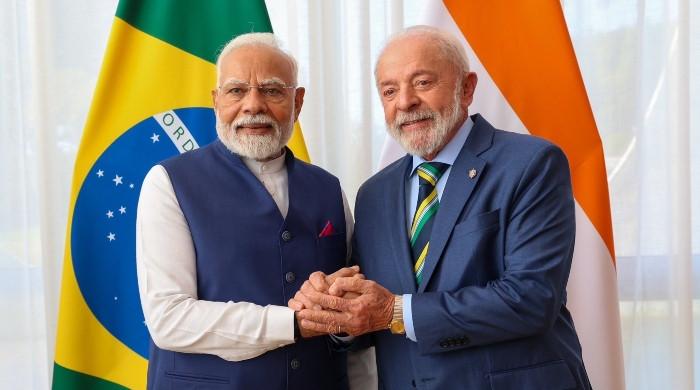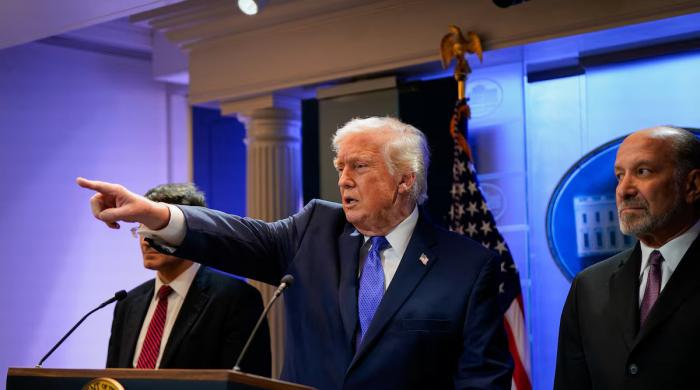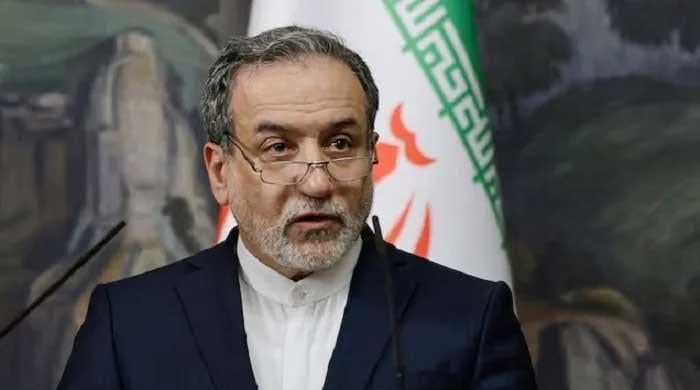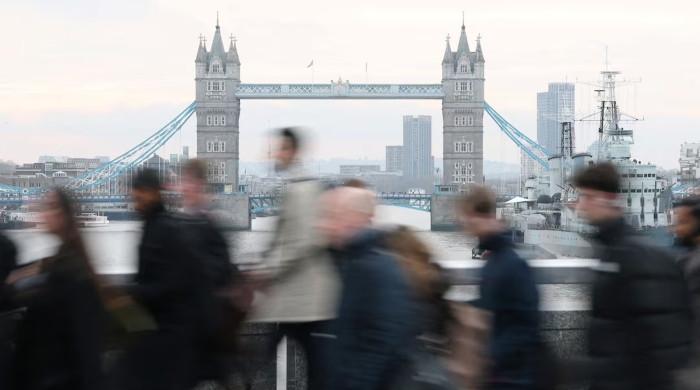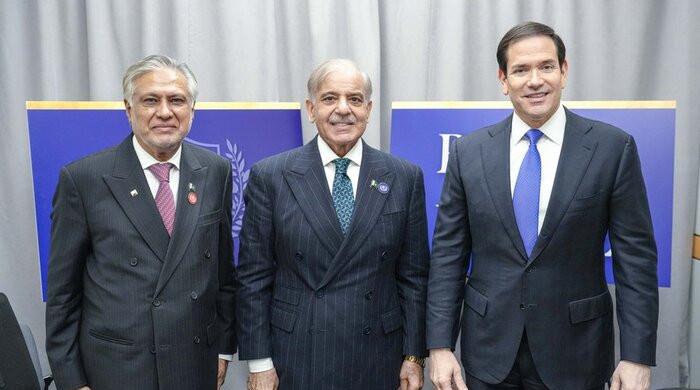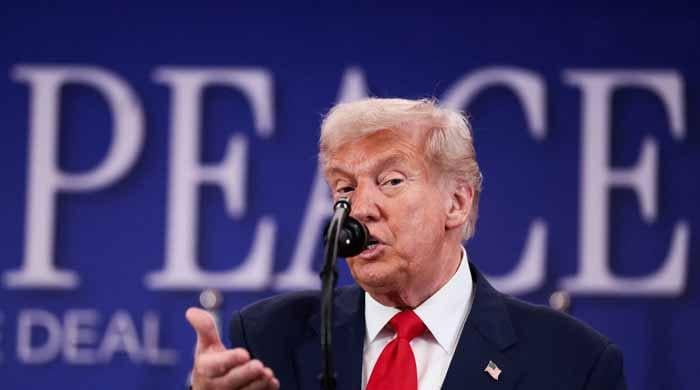EU cannot ensure social cohesion without reforms, says MEP Julie Ward
Julie Ward is the author of report ‘The Role of Intercultural Dialogue in Promoting EU Fundamental Values’
March 15, 2017
BRUSSELS: Member of European Parliament Julie Ward has said it is high time EU member states translating recommendations of her renowned report "The role of intercultural dialogue, culture diversity and education in promoting EU fundamental values”.
Ward said this in an exclusive interview with Geo News.
Evaluating the performance of the member states after one year of a consensus adaptation of the report in 2016 by the EU parliament, she said that the Europe Fund for Refugees was among the important fruits of this report. Ward said that the states have to realise they cannot solve their increasing problems regarding social cohesion without reforming their existing policies and frameworks.
The report recommends fundamental changes of approach in education, social and cultural policies while bringing intercultural dialogue, interfaith harmony and gender equality as pivotal focus of policy making. It draws upon already existing documents such as Treaty of European Union (Articles 2, 21 and 27/3), Treaty on the Functioning of the European Union (Article 17, 165-167), Charter of fundamental rights of the European Union (Article 10, 11, 22), European Convention on Human Rights (Article 2 of Protocol-1), UN Resolution of 20 December 2010 on Culture and Developmet, UN Mililennium Declaration 2000, and others.
Above all, it was the Paris Declaration on promoting citizenship and common values of freedoms, tolerance and non-discrimination through education, which inspired in the making of this report. The Paris Declaration was adopted at the informal meeting of EU education ministers on 17 March, 2015 in Paris after the shocking event of Charlie Hebdo terror attack. "The Paris Declaration was an expression of our commitment towards our common values. We decided not to abandon our collective soul in the face of terrorism that primarily attacked our freedoms", said Julie Ward. "Our report was one step ahead of Paris Declaration. We asked the member states to bring education, gender empowerment and intercultural dialogue at the core of the policies. We advocated bringing this realisation to every aspect of national, regional and international dealings of EU".
The report acknowledges that intercultural dialogue, not being a legal concept, was not regulated by national, EU and international law but also points out that it is built on international frameworks aimed at promoting human rights and cultural diversity. The report recalls the tentative definition of the "intercultural dialogue", forwarded during the European year of Intercultural Dialogue (2008) as "a process that comprises an open and respectful exchange or interaction between individuals, groups and organisations with different cultural backgrounds or world views" to achieve the avowed aims of "developing a deeper understanding of diverse perspectives and practices, increasing participation and freedom and ability to make choices, fostering equality and enhancing creative processes".
The report encourages the stakeholders to "establish and up-to-date, clear, policy-related definition of intercultural dialogue, to implement or harmonise methods, quality criteria and indicators."
In the face of growing challenges in EU, especially regarding globalisation, migration, religious and inter-cultural conflicts and rise of radicalisation, the report suggests families, media, educators, business, communities and faith leaders work jointly to overcome the problems. It emphasises upon the importance of solid knowledge of one's own as well others’ cultural heritage and creative expressions. "The application of both universal human rights (as individual rights) and cultural rights recognising specific and multiple cultural identities are essential."
Explaining this point, Julie Ward said that the increasing “ghettoisation” of the migrant communities depicted a deep disconnect from their own as well as the mainstream European culture. She said Europe had to bring an end to the culture of fear, isolation and alienation among the migrants in order to build a coherent society.
Majority of the report's recommendations revolve around restructuring the education system, bringing inter-cultural sensibilities in textbooks, teaching methods, teacher-parents relations, trainings, exposure visits, and extra-curriculum activities. “…fostering an intercultural, interfaith and value-based approach in the education field should be encouraged in order to address and promote mutual respect, integrity, ethical priniciples, social inclusion and cohesion," the report says.
Considering interfaith dialogue as a precondition for peace, the report projects it as," an essential tool of conflict management, focusing on dignity of the individual with particular reference to freedom of thought, conscience and religion". It also highlights the "timely integration and education of segregated communities".
The report believes that increasing public investment in inclusive, quality and accessible formal, non-formal and informal education is the first step to providing equal access and opportunities for all. It recalls the need to ensure cultural and social diversity in classrooms and learning settings including among educators.
The report also stresses upon the need for civic education to start from an early age as a coordinated effort by all education stakeholders. It highlights the important role of building synergies and partnerships between all levels and forms of learning, including participation in sports and volunteering activities, while building strong bridges between culture and education. This is to develop competencies and transferable skills through enhanced mobility of young people and teachers as well as all forms of cooperation between schools and universities such as common education platforms, joint study programmes and joint projects. “Exposing children to other cultures at a very young age helps them obtain basic life skills and competences necessary for their personal development, future employment and active EU citizenship".
The report also recommends investments in lifelong learning programs for teachers, equipping them with necessary pedagogical competencies on the topics of migration, acculturation and psychology enabling them to utilise diversity as a rich source for learning in classrooms.
Ward’s report encourages EU institutions to broaden their analysis of all forms of radicalisation and promote reflections on the nature and processes of political extremism and violence. She said that radicalisation was a dynamic, relational process and an unforseen and unpredictable consequence of a series of transformations. “The intelligence services and law enforcing agencies, while applying punitive measures, must always respect fundamental rights such as the right to date protection, freedom of expression, presumption of innocence and effective remedy". It is very important to remove the obstacles to mobility for artists, educators, academics and cultural professionals, by harmonising and simplifying visa procedures, she said.
She also pointed out the report clauses that underline family’s role in preservation of cultural identity, traditions, ethics and the value system of the society, as children are first acquainted with their culture through the family. The report calls upon the commission and council to adopt intercultural dialogue as a strong and committed political objective of EU.
About the refugee crisis, she said that it needed efforts from every sector of the society starting from an individual. She added that it is very important to bring local communities, grassroots NGOs, media, social media and local leadership on one page to solve the daunting task of integrating migrants. "We shall overcome this problem not by fear of the other, but by accepting and respecting the other. More than anything else, we have to have trust in our own values", she concluded.





